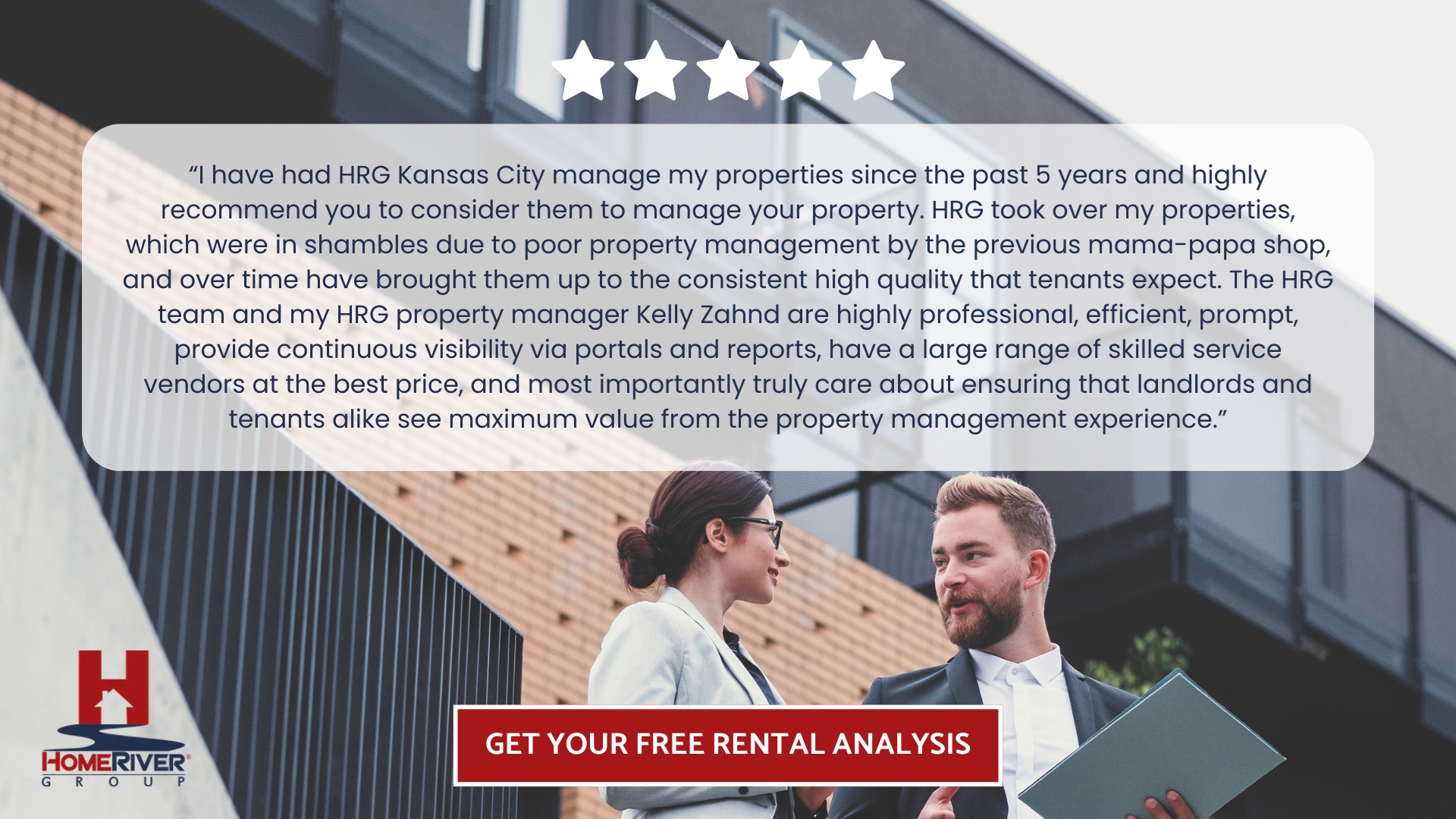
Selling an investment property isn’t just a matter of timing; it’s a financial move that can shape your long-term returns and future opportunities. From tax obligations and market fluctuations to cash flow trends and asset maturity, deciding when to sell requires more than just a gut feeling. For many investors, the right decision is driven by a mix of economic conditions, personal goals, and property performance. Understanding how these factors align is critical to capturing the full value of your real estate investment.
As one of the nation’s leading full-service property management providers, HomeRiver Group manages thousands of rental homes across the United States, offering unmatched scale, local market knowledge, and investor-focused solutions. Our expertise spans everything from tenant placement and property maintenance to maximizing portfolio performance through smart asset decisions. With decades of experience guiding property owners through every phase of the investment lifecycle, we understand the financial strategies that drive real results.
We will be discussing when to sell investment property for maximum profit, what signs to watch for, and how HomeRiver Group helps property owners make more informed, profitable exit decisions.
Understanding The Real Estate Investment Lifecycle
Every real estate investment has a natural lifecycle. From the initial purchase and stabilization of the property to the eventual disposition, each phase plays a role in determining overall profitability. Understanding where your property stands in this lifecycle is the first step in identifying the optimal time to sell.
In the early stages, investors focus on acquisition and improvement. Renovations, lease-ups, and tenant stabilization help increase a property's market value and rental income. Over time, the property matures, generating consistent cash flow and, ideally, appreciating in value. However, there comes a point when holding the asset may no longer produce the same returns as selling.
Knowing when your property has reached its peak performance is crucial. It allows you to weigh current income against potential profit from a sale. Evaluating factors like local market conditions, property condition, and your long-term investment goals will help you determine whether it's time to move into the final stage: liquidation.
Hitting The Peak: Signs It’s Time To Sell Your Investment Property
Selling at the right time is one of the most important decisions an investor can make. The following signs can help you recognize when your investment property may be approaching its peak value:
Significant Property Appreciation
If your property has appreciated well beyond its original purchase price, this could be a strong signal to consider selling. Many investors use appreciation benchmarks as an indicator that they have captured most of the property’s value growth, especially in hot markets where values may soon level off.
Declining Rental Income Or Increasing Costs
A decrease in net rental income is often a warning sign. Whether it's due to rising maintenance costs, aging infrastructure, or reduced demand in the area, the property may no longer be performing at a level that justifies continued ownership.
Favorable Market Conditions
A seller’s market, where demand exceeds supply, can present the perfect opportunity to list your property. Competitive offers, faster closing times, and higher sale prices are common during these periods and can significantly boost your return on investment.
Changing Investment Priorities
Sometimes the signs are personal. You may be looking to diversify your portfolio, reduce management responsibilities, or take advantage of better opportunities elsewhere. In these cases, a strategic sale can support larger financial or lifestyle goals.
Tax Implications Of Selling
Selling an investment property doesn't just affect your portfolio; it also triggers important tax considerations. Understanding how these taxes work can help you prepare for what comes next and possibly reduce what you owe:
Capital Gains Tax On Investment Property
When you sell an investment property for more than what you paid, the profit is considered a capital gain and is subject to taxation. If you’ve owned the property for more than a year, it’s typically taxed at the long-term capital gains rate, which is lower than ordinary income tax. However, that still represents a substantial cost you need to plan for.
The Role Of A 1031 Exchange
A 1031 exchange allows investors to defer capital gains taxes by reinvesting the proceeds into another like-kind property. This strategy can be valuable if you plan to stay in real estate but want to upgrade your portfolio or shift markets. To qualify, you must follow strict timing and reinvestment rules.
Understanding Rental Income Taxation
In some cases, it makes sense to evaluate your ongoing tax obligations before selling. Knowing how rental income is taxed, including depreciation recapture, gives you a clearer picture of the true financial impact of holding versus selling. HomeRiver Group explains more about this in their blog on how is rental income taxed, which offers insights that can shape your exit strategy.
Should You Sell Or Hold?
Deciding whether to sell or hold an investment property is not always straightforward. The right move depends on your financial goals, the property's performance, and your long-term strategy as a real estate investor:
Evaluate The Property's Long-Term Potential
If the property continues to generate strong, consistent rental income and is located in a market with future growth potential, holding may offer more value over time. However, if maintenance issues are increasing or the neighborhood is showing signs of decline, the long-term upside might not justify continued ownership.
Consider The Opportunity Cost
Keeping capital tied up in one asset may limit your ability to pursue new investments. If selling your property would allow you to reinvest in a higher-performing asset or reduce debt, the overall return on your portfolio could improve even if the current property still performs reasonably well.
Understand The Financial And Lifestyle Impact
Your decision may also depend on personal goals, such as reducing active management responsibilities or reallocating funds toward other priorities. In some situations, the best question to ask isn’t just about the property's value; it’s about how that value fits into your broader financial plan. HomeRiver Group discusses this in more depth in should I sell or rent my house, a resource that can help you make a more informed decision.
Timing The Sale For Maximum Profit
Getting the timing right can make a significant difference in your net profit. While there is no universal formula, several factors help determine when to list your investment property for sale:
Watch For Seasonal Trends In The Market
In many markets, spring and early summer tend to bring more buyers to the table. These months typically see higher listing prices and quicker sales. Understanding local seasonality gives you a better chance of capturing peak demand when listing your property.
Monitor Economic Indicators
Interest rates, inflation, employment levels, and housing inventory all influence buyer behavior. For example, when interest rates are low and consumer confidence is high, demand tends to rise, increasing your chances of selling at a premium.
Assess Buyer Demand In Your Area
Pay attention to how quickly comparable properties are selling and at what price. If similar properties in your neighborhood are moving fast and fetching strong offers, it could be the right time to enter the market. On the other hand, if listings are lingering, it might be better to wait or reassess your pricing strategy.
Selling An Investment Property With A Property Management Partner
Working with a professional property management partner can simplify the sales process and potentially increase your returns. The right partner brings both local expertise and operational support, helping you make more informed decisions before listing your property:
Leverage Experience And Market Knowledge
Property management companies like HomeRiver Group understand local market conditions and investor trends. Their insights can guide you in determining the optimal listing price and timing. They also know how to present your property to appeal to serious buyers who recognize the value of a well-managed asset.
Reduce Disruption To Tenants And Income
If your property is currently occupied, selling while maintaining tenant satisfaction and cash flow can be complex. A seasoned property management team helps coordinate showings, communicate with residents, and keep the rental income stable during the transition. This minimizes the risk of vacancy during the sale process.
Plan For The Bigger Picture
For investors considering a broader portfolio shift, such as selling multiple units or exiting a market entirely, working with a company like HomeRiver Group can offer strategic direction. Their article on what to consider when selling your property management business is a valuable read for those thinking beyond a single property and planning long-term moves.

Final Thoughts
Timing a property sale for maximum profit involves much more than watching the market. It requires careful planning, clear financial goals, and support from the right professionals. Whether you are selling to capitalize on appreciation, reduce your responsibilities, or realign your investments, every decision should be backed by data and experience.
HomeRiver Group provides expert property management and investment support to help you make informed choices at every stage of ownership. From evaluating your current property performance to coordinating a seamless transition, their team helps you maximize value without unnecessary stress.
If you are thinking about selling, now is the time to explore your options with a partner who understands both the numbers and the strategy behind a successful investment exit.
Read also:
Frequently Asked Questions About When To Sell Investment Property For Maximum Profit
Can I sell my investment property if it has tenants?
Yes, you can sell a rental property with tenants in place. In fact, some investors prefer occupied properties, especially if the tenants are reliable and paying market rent. However, you must follow local tenant laws regarding notice periods and access for showings.
What happens to my lease agreements if I sell?
Lease agreements typically transfer to the new owner until they expire. The buyer becomes the new landlord and must honor the terms already in place, unless otherwise negotiated during the sale process.
How can I increase the value of my property before selling?
Making strategic upgrades like kitchen updates, curb appeal improvements, or addressing deferred maintenance can boost market value. A property manager can help identify which changes offer the best return without overcapitalizing.
Do I need to notify my tenants before selling?
Yes, in most states, landlords are legally required to notify tenants when listing a property for sale. The rules vary by location, so consult with a local property management expert to stay compliant.
Is it better to sell an investment property vacant or occupied?
It depends on the type of buyer. Investors often prefer properties with paying tenants in place, while residential buyers might want a vacant home for immediate occupancy. The strategy should match the target buyer.
Can I defer taxes if I reinvest after selling?
Yes, using a 1031 exchange allows you to defer capital gains taxes by reinvesting in another investment property. This can be a powerful way to grow your portfolio without a major tax hit.
Will selling my property affect my credit?
Selling a property does not directly impact your credit score. However, if you default on a mortgage or have unpaid debts tied to the property, it could affect your credit standing.
How long does it usually take to sell an investment property?
The timeline varies based on market conditions, property type, pricing, and location. On average, it can take 30 to 90 days from listing to closing, assuming there are no major delays in financing or inspections.
What role does cash flow play in deciding to sell?
If your property's cash flow is consistently decreasing or failing to meet your financial targets, it may be time to consider selling. This can signal underlying issues like rising expenses or slowing demand in the area.
Should I hire a real estate agent or work with a property manager?
Both can be helpful, but a property manager often has deeper insight into the day-to-day performance of your investment. A company like HomeRiver Group can offer both operational support and market expertise, making the process more strategic from start to finish.









